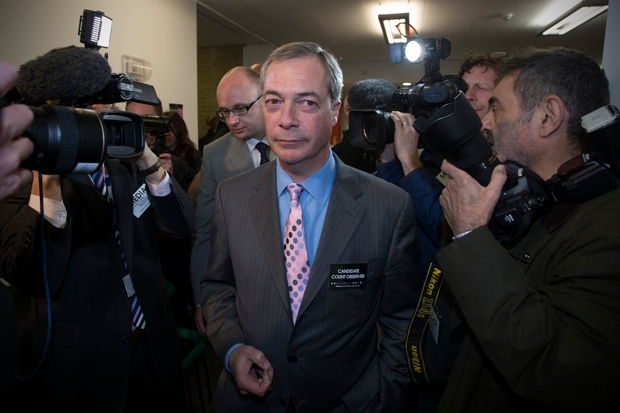Rochester is not a freak. It has given us a glimpse of what bookies now believe to be the lost likely outcome of the next election: that no one wins. I look at this in my Daily Telegraph column today.
‘All bets are off,’ said Nigel Farage after Mark Reckless prevailed in yesterday’s by-election. But that’s not quite right: bets are being made, and the balance of money points to ‘no overall control’. That is to say: a Prime Minister too unpopular to win a majority, and too toxic to be able to form a coalition. A minority government that can’t call an early election thanks to the Fixed-Term Parliaments Act and will have to implement cuts far deeper and more painful than any implemented so far (remember, we’re not even halfway through the fiscal consolidation, due to the lamentably slow progress of spending reform).
There is a precedent. In the recent Swedish election, Cameron’s ally Fredrik Reinfeldt lost power. He adopted a safety-first approach before the election, seeking to minimise the difference with his rival and bet that the left’s uselessness would save him (ie, the same strategy being adopted by Cameron now). The result was as you’d expect: voters couldn’t quite work out what the conservatives would do with another term in office, but they didn’t turn to the opposition either. Instead the populist Sweden Democrats prospered, as did the feminists, but no mainstream parties did. No one won the Swedish election but someone had to form a government, so the Social Democrats (fresh from their second-worst election in history) cobbled together a coalition which lacks purpose or direction. Sweden is now governed by a coalition of losers.
And this is precisely the fate that awaits Britain. A Prime Minister who demonstrably failed to sell his agenda to voters – and nonetheless obliged to implement the deepest cuts Britain will have seen in its modern history.







Comments